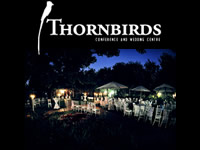Perfect Wedding Planning
How big will your wedding be? Small and intimate or large and extravagant? Take into account your budget and the size of the venue (how many guests can it accommodate?).
To work out your guest list, start with immediate family and good friends and then add people until you’ve reached your number. The general rule is 25% of the guest list from the brides side, 25% from the grooms side and 50% between you and your groom unless of course you are paying for the wedding yourselves.
Who, traditionally, pays for what?
Brides Parents pay for newspaper announcements, brides dress and accessories, reception venue, flowers for the ceremony and reception, invitations, catering, wedding cake, transport for the bride, photography and music.
Grooms Parents pay for drinks and the reception, corsages, buttonholes and bouquets, all costs to do with the ceremony excluding flowers.
Bride pays for grooms wedding ring and gifts, bridesmaid’s gift, personal expenses such as hair and makeup.
Groom pays for brides’ engagement and wedding rings, gifts for bride and bridal party marriage licence and legal expenses.
Bride and groom pay for the honeymoon.
Meet with you fiancé, his parent and your parents to discuss who will be paying for what. Once you’ve worked out your budget stick to it but put away 10% for unexpected extras.
Planning your wedding if fun but also a lot of hard work, so get your family, friends and fiancé involved.
Keep a diary with names, numbers and to do lists. Also note appointment dates and times with services providers, as well as quotes received. Keep your guest list handy so you can tick off names as they RSVP and keep track of numbers.
If you’re planning a complicated wedding and you have the budget you could enlist the services of a wedding coordinator. He or she handles the responsibilities you’d rather not wrestle with, so you’re left free to concentrate on being the happy bride.
Wedding ceremonies are plainly not what they used to be. Out with set patterns and traditional format ceremonies in with unique, well thought out wedding ceremonies, tailored to the individual needs of the bride and groom. However, whatever type of wedding ceremony you chose, there are still some important factors to consider when planning unspoiled wedding ceremonies.
Time of year is extremely important. Most brides and grooms prefer summer weddings which means the popular venues are likely to be booked up, well in advance. If you are more flexible as to the Season you want to get married, in terms of dates and times, you may have a much wider choice of venues. Also venues may be willing to give discount for winter weddings.
These days, many wedding ceremonies take place in non-conventional locations such as beaches or even underwater and in the sky! Whilst it may be easier to find availability for a more unusual venue, these specialist ceremonies are likely to be more expensive. Another great way of securing the venue that you really want, at a cheaper price, is to be flexible with your times and days. Venues may offer morning or mid-week wedding ceremonies, at a reduced price. These non- traditional times could mean that you would save on accommodation, transport and photography. Overall, you can make substantial savings. No two wedding ceremonies are the same and one of the best ways to add an individual touch, without going overboard, is to write your own vows. These don't have to be religious and can often be a more meaningful and a truer expression of love than a traditional vow. Always check with the person conducting the ceremony, as there are still basic requirements in terms of what must be said and carried out to make the wedding legal. It is the little touches that make wedding ceremonies special to the individuals involved. Never underestimate the effect of a few well chosen songs or an unusual flower arrangement can have on your guests. Flowers are very seasonal, so it is always best to ask your florist for professional advice. Also bear in mind that the flowers you chose should complement whatever theme you are following. If, for example, you are going for simplicity, stick to simple flowers that are classic and subtle. Always check with venues before you book as to what sort of floral arrangements they can accommodate. Some venues may have limited space and could need to re-use the area very quickly, so will be unable to cope with large amounts of flowers. Or you could request that you are the last wedding of the day. Thinking about the small things early on will make the big things happen, on the day!





